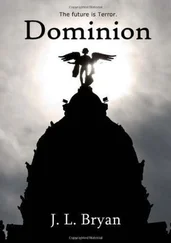Byron Dunn - Raiding with Morgan
Здесь есть возможность читать онлайн «Byron Dunn - Raiding with Morgan» — ознакомительный отрывок электронной книги совершенно бесплатно, а после прочтения отрывка купить полную версию. В некоторых случаях можно слушать аудио, скачать через торрент в формате fb2 и присутствует краткое содержание. Жанр: foreign_antique, foreign_prose, на английском языке. Описание произведения, (предисловие) а так же отзывы посетителей доступны на портале библиотеки ЛибКат.
- Название:Raiding with Morgan
- Автор:
- Жанр:
- Год:неизвестен
- ISBN:нет данных
- Рейтинг книги:5 / 5. Голосов: 1
-
Избранное:Добавить в избранное
- Отзывы:
-
Ваша оценка:
- 100
- 1
- 2
- 3
- 4
- 5
Raiding with Morgan: краткое содержание, описание и аннотация
Предлагаем к чтению аннотацию, описание, краткое содержание или предисловие (зависит от того, что написал сам автор книги «Raiding with Morgan»). Если вы не нашли необходимую информацию о книге — напишите в комментариях, мы постараемся отыскать её.
Raiding with Morgan — читать онлайн ознакомительный отрывок
Ниже представлен текст книги, разбитый по страницам. Система сохранения места последней прочитанной страницы, позволяет с удобством читать онлайн бесплатно книгу «Raiding with Morgan», без необходимости каждый раз заново искать на чём Вы остановились. Поставьте закладку, и сможете в любой момент перейти на страницу, на которой закончили чтение.
Интервал:
Закладка:
It was on the evening of May 2d, and Calhoun was in Lexington when he was startled by hearing the news-boys crying, “Pulaski, Tennessee, captured by John Morgan!” “He is headed north, closely pursued by the Federal forces!”
Then Morgan had commenced his raid. There was no time to be lost. That night, the next day, and the next night horsemen could be seen galloping furiously along unfrequented roads, throughout central Kentucky. The word was, “Meet at the rendezvous near Harrodsburg.” Three days afterwards, two hundred of the best, the bravest, and the noblest youths of Kentucky were ready to march to join Morgan. Each one of them had provided his own outfit. They asked no pay to fight for their beloved South.
Before going, Calhoun determined to pay his father one more visit, although he knew it was dangerous to do so. Concealing his horse in a thicket outside the limits of the city, he waited until dark, then stole across fields, and through alleys home.
No sooner did the Judge see him than he cried, “Calhoun! Calhoun! what have you done! Do you know they are on the watch for you?”
“I had to see you once more before I went,” answered Calhoun. “I was careful, and I do not think any one saw me come. I have some things of importance to tell you.”
Father and son talked together for some five minutes in low, confidential tones, when they were interrupted by Jennie Freeman bursting unannounced into the room and crying, “Run, Cal, run! the soldiers are coming! They are most here!” And before either could say a word, she was out again like a flash.
“Who would have thought it, of that Abolitionist Freeman’s daughter,” gasped the Judge. “Fly, my boy, fly! and may God protect you.”
Calhoun knew his danger. Grasping his trusty revolver, he cried, “Good-bye, all,” and ran through the house to pass out by the back way. Just as he reached the door, it was opened, and he fairly rushed into the arms of a soldier who was entering. So surprised were both that they could only stare at each other for a brief second; but Calhoun recovered himself first, and dealt the soldier a terrific blow over the head with the butt of his revolver. The soldier sank down with a moan, and Calhoun sprang out over his prostrate body, only to meet and overturn another soldier who was just ascending the steps. The force of the collision threw him headlong, but he was up again in a twinkling, and disappeared in the darkness, followed by a few ineffectual shots by the baffled Federals.
Judge Pennington heard the firing and groaned, “My son, oh, my son!”
The firing had alarmed the neighborhood, and there were many pale faces, for the people knew not what it meant.
A short time afterwards a Federal officer arrested Judge Pennington, and he was dragged off to jail. But he did not think of himself. “My son,” he asked, “was he captured? was he hurt?”
“I think the devil protected his own,” roughly replied the officer, “but we will attend to you for harboring Rebels.”
Judge Pennington lay in jail among criminals, not only that night, but for nearly a week. There was talk of sending him to a Northern prison as a dangerous man. But Fred Shackelford heard of his arrest and his probable fate, and came in and had a stormy interview with the Federal commander. He showed that Judge Pennington had committed no overt act; that his son, who was a Confederate soldier, had simply come to visit him, and had resisted capture, as any soldier had a right to do. As Fred threatened to report the case to the commander of the Department, the Judge was released.
Jennie Freeman had many qualms of conscience over what she had done. But Judge Pennington kept her secret well, telling only Fred; and when he congratulated Jennie over her act, she felt relieved; for young Shackelford was not only known as a favorite of General Nelson, but as one of the most daring and successful of Union scouts.
Calhoun met with no more adventures. He had no trouble in finding his way to his horse, and he lost no time in joining his comrades.
“Boys, John Morgan told me to meet him at Glasgow,” he cried, and two hundred voices answered with a loud “Hurrah! we will do it!”
Little did Calhoun or they think that at that very time John Morgan, his forces defeated and scattered, was fleeing before the enemy. But like them, he had set his face toward Glasgow.
CHAPTER IV.
MORGAN’S FIRST RAID
All through the month of April General Halleck had been concentrating the mighty armies of almost the entire West for the purpose of crushing Beauregard at Corinth. For a month the two armies lay but a few miles apart, almost daily skirmishes taking place between the outposts.
During the month General O. M. Mitchell had overrun Middle Tennessee, and was holding the Memphis and Charleston railroad from Decatur to Bridgeport, Alabama. Two railroads led south from Nashville, Tennessee, both connecting with the Memphis and Charleston Railroad, one at Decatur, and the other at Stevenson, Alabama. Both of these roads were of vital importance to General Mitchell, for on them he depended for transportation for the sustenance of his army.
These roads had been badly damaged by the Confederate army when it retreated from Nashville, and General Mitchell was busily engaged in repairing them. If repaired and held, it meant that Chattanooga must fall, and the Confederate army be driven still farther south.
John H. Morgan, now promoted to a colonelcy, believed that with a small force the rear of the Federal army could be raided, the railroads cut, bridges burned, and their communications so destroyed that they would be forced to fall back. General Beauregard was not so sanguine. While great damage might be done, and the Federal army subjected to much inconvenience, the contest, after all, would have to be decided by the great armies. Then he needed every man, as Halleck was about to move.
At last he gave Morgan permission to make his raid, but with a force not to exceed five hundred.
It was in the last days of April that Morgan started with his little force, on what seemed to many certain destruction. But every man in the command was full of enthusiasm. They had unlimited faith in their leader, and where he went they would follow.
Following almost the exact route taken by Calhoun, Morgan’s first blow fell on Pulaski, Tennessee. So swift and unexpected had been his movements that the Federals were taken completely by surprise. The place was surrendered without a struggle.
Moving rapidly north, the command attacked and, without any loss, captured a wagon-train en route from Columbia to Athens. Thus at the very commencement of his raid, Morgan captured Pulaski, with all its military stores, a wagon-train, and some two hundred and seventy prisoners, and this without the loss of a man. Among the prisoners captured were a son of General O. M. Mitchell, and our old acquaintance, Lieutenant Haines.
The prisoners were all paroled, and were astonished at the kind treatment they received. Both Captain Jumper, who was in charge of the wagon-train, and the son of General Mitchell were loud in their praise of the way they were used by Morgan.
After destroying all the Federal property captured, and damaging the railroad as much as possible, the command continued on their raid, their route taking them by the plantation of Mr. Osborne. The welcome they received there was a royal one. Colonel Morgan stopped and took dinner with the family.
Here he heard of the adventure of Calhoun, and he laughed long and heartily over the way Calhoun had recovered his horse.
“Tell him,” said Miss Osborne, “that I forgive him his abrupt leaving, as no harm came to father. By the way, Lieutenant Haines has become quite friendly, coming out to see us two or three times.”
Читать дальшеИнтервал:
Закладка:
Похожие книги на «Raiding with Morgan»
Представляем Вашему вниманию похожие книги на «Raiding with Morgan» списком для выбора. Мы отобрали схожую по названию и смыслу литературу в надежде предоставить читателям больше вариантов отыскать новые, интересные, ещё непрочитанные произведения.
Обсуждение, отзывы о книге «Raiding with Morgan» и просто собственные мнения читателей. Оставьте ваши комментарии, напишите, что Вы думаете о произведении, его смысле или главных героях. Укажите что конкретно понравилось, а что нет, и почему Вы так считаете.












